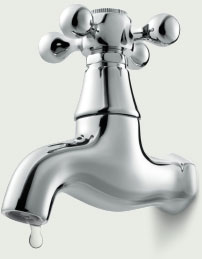
Environmental toxin health risks at home, work and school
Posted in Healthy Home & Garden on May 17, 2011. Last modified on April 30, 2019. Read disclaimer.
While "environmental toxins" is a common phrase, what do we mean by this? It's more than polluted air or water (though both are harmful). It can be as subtle as paint on the office wall (it emits chemicals that have been linked to cancer). And it can as scary as pesticides used around young children in school (their developing bodies are especially vulnerable to harm).
Sadly, environmental toxins are so common that the U.S. government offers an introduction to "toxic chemicals and environmental health risks you might encounter in everyday life, in everyday places." It's called "Tox Town," (toxtown. nlm.nih.gov), a service of the National Library of Medicine about the poisons' that inhabit our lives. From home to office to school, environmental toxins are part of modern life, and they can contribute to (if not cause) health issues like allergies, disease and even death.
+ Free Shipping & Returns on Eligible Items.
(*Amazon's Top 100 list updated hourly.)
Think you're not at risk for exposure to environmental toxins?
Here are a few of the commonly encountered toxic chemicals and environmental health risks:
Offices and stores
- Chemicals such as pesticides and strong cleaning products.
- Air pollutants coming from either indoor or outdoor sources such as gases (carbon monoxide, radon), second-hand smoke, or particulates (construction materials, new furnishings).
- Biological contaminants such as molds, bacteria, viruses or pollen.
School
- Chemicals such as lead (drinking water, old paint), mercury (thermometers, lamps, laboratory equipment), processed wood.
- Biological contaminants such as molds, dust, pest residue (cockroaches, mice).
- Air pollutants such as gases (radon), diesel fumes (school bus exhaust) or asbestos (roofing shingles, electrical or plumbing insulation, ceiling or floor tiles).
Vehicles
- Air pollutants such as carbon monoxide and air toxins (benzene, formaldehyde) that may cause serious health problems. The US EPA estimates that vehicles account for 1/2 of all cancers attributed to outdoor air toxins.
Home
- Air pollutants like carbon monoxide (from burning of oil, natural gas, kerosene or other fuels), or radon (enters through cracks in house foundation).
- Household products that are stored improperly, used in excess, or inhaled (antifreeze, batteries, cleaning products, bleach, glue, hair coloring, mothballs, paint thinner, nail polish or remover, fertilizers, gasoline, pool chemicals, motor oil, wood preservatives.)
"Drinking" drugs by accident
While the overuse of veterinary medications is a factor, the growing use of Prescriptions and Personal Care Products (PPCPs) such as fragrances, cosmetics, sunscreen, laundry products are also contributing to accidental drug-taking.
Medications, dietary supplements, and consumer products that are flushed, poured down the drain or simply dumped in the garbage end up in groundwater, streams and waste-water treatment plants -- and eventually make their way into the water supply for millions of Americans.
The PPCPs most commonly detected in streams and groundwater drinking supply sources include:
- steroids
- natural and synthetic hormones
- detergents and disinfectants
- insect repellents
- antibiotics
- prescription and over-the-counter drugs
What can we do?
PPCPs in drinking water have become such a problem that some communities around the country stage "drug take-back" events to collect unused medicines for safe disposal. If your area doesn't offer such collections, you can create your own. In addition, there may be a pharmacy in your area who accepts unused or outdated medications.
When discarding unused medications or supplements, the U.S. Environmental Protection Agency (EPA) suggests that you keep the medicines in their original containers (after removing your identifying information) but mixing in something that won't appeal to children or animals (such as used coffee grounds, a small amount of disinfectant or cat litter). Then put the mixture into a sealable container (such as from margarine or cottage cheese) or bag and put in the trash.
As for Personal Care Products, use them sparingly (according to label instructions) and finish the bottle before discarding. Also, look for products containing environmentally-friendly ingredients.
Clearly, there are pollutants almost everywhere. We may not be able to eliminate them, but we can offset their effects with healthy living.
Sources:
http://toxtown.nlm.nih.gov
http://www.groundwater.org/gi/ppcp_about.html
http://toxics.usgs.gov/pubs/contaminant_studies_article.pdf
 How being in love can effect our health
How being in love can effect our health How to cut onions without crying
How to cut onions without crying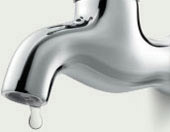 Hidden toxins in our homes and schools
Hidden toxins in our homes and schools Strategy for success with New Years resolutions
Strategy for success with New Years resolutions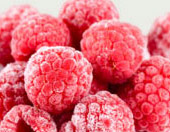 Tips for properly freezing foods
Tips for properly freezing foods Importance of strength training for seniors
Importance of strength training for seniors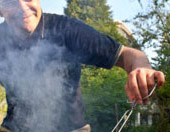 BBQ health and safety tips
BBQ health and safety tips Attracting butterflies to your garden
Attracting butterflies to your garden Teaching values to our kids
Teaching values to our kids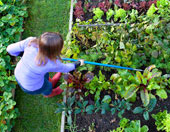 Guide to beginning a vegetable garden
Guide to beginning a vegetable garden Attracting birds and hummingbirds
Attracting birds and hummingbirds How to prevent birds from flying into glass windows
How to prevent birds from flying into glass windows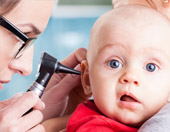 When to take a child to the hospital
When to take a child to the hospital